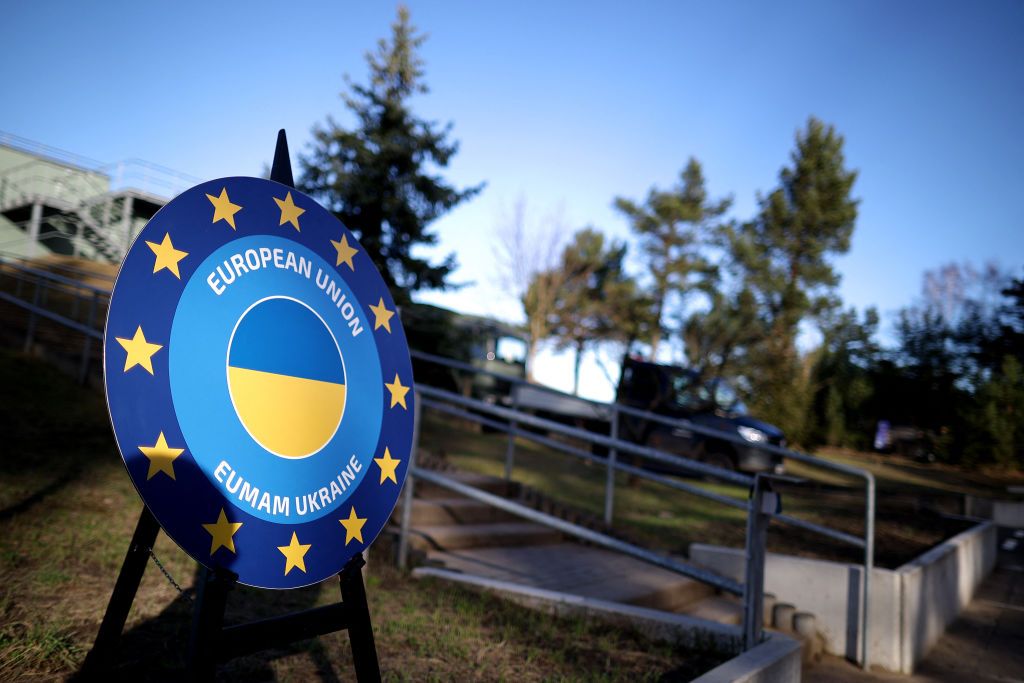The European Union is considering sending instructors to Ukraine to train Ukrainian soldiers under certain political and operational conditions. The EU Military Assistance Mission for Ukraine (EUMAM) was established in October 2022 to improve the training of the Ukrainian military. Kyiv has requested that the EUMAM conduct trainings on Ukrainian soil, citing logistical and cost considerations. However, some EU member nations are concerned that conducting trainings in Ukraine may provoke Russia and escalate conflict. The safety of trainers operating in an active war zone is also a major concern, as the EU may not be able to fully protect them. Most EUMAM trainings have been conducted in Poland or Germany, but Ukraine has requested in-country trainings for convenience.
On August 27, 2022, key developments in the Ukraine war included Russia redeploying 30,000 troops to Kursk Oblast amid Ukraine’s incursion. Ukraine also claimed to have tested its first ballistic missile, and President Zelensky announced plans to present a victory plan to the U.S. in September. Russia accused Ukraine of attempting to break through to Belgorod, further escalating tensions in the region. The ongoing conflict between Ukraine and Russia has resulted in significant military movements and testing of new weaponry, indicating the intensity of the situation on the ground.
The EU’s foreign and defense ministers are planning to discuss a 34-page document titled “Strategic Review of EUMAM Ukraine,” which outlines the challenges and considerations of conducting trainings on Ukrainian soil. The document points out the need for further analysis to fully assess the risks, mitigation measures, and operational advantages of in-country trainings. While Ukraine has requested these trainings for logistical reasons, concerns about provoking Russia and ensuring the safety of trainers in an active war zone remain significant obstacles to overcome. The EU has trained approximately 60,000 Ukrainian servicemembers through the EUMAM program in Poland and Germany, but the decision to conduct trainings in Ukraine is still under scrutiny.
The situation in Ukraine continues to escalate as both Russia and Ukraine make strategic moves in the conflict. Russia’s redeployment of troops and Ukraine’s testing of ballistic missiles indicate a significant military buildup and aggression on both sides. President Zelensky’s plans to present a victory plan to the U.S. in September suggest that Ukraine is actively seeking support and assistance from its allies in the face of growing threats from Russia. The international community, including the EU, is closely monitoring the developments in Ukraine and assessing how best to support the country while avoiding further escalation of the conflict.
As tensions rise in Ukraine, the decision to send EU instructors to train Ukrainian soldiers in-country poses a challenge due to the risk of provoking Russia and ensuring the safety of trainers. The EU Military Assistance Mission for Ukraine has been conducting trainings in Poland and Germany, but Ukraine’s request for in-country trainings for logistical reasons complicates the situation. The EU’s foreign and defense ministers will discuss the strategic review document to determine the feasibility of conducting trainings on Ukrainian soil. The ongoing conflict in Ukraine remains a critical issue, with both Ukraine and Russia making strategic moves that could have far-reaching consequences for the region.
In summary, the European Union is considering sending instructors to Ukraine to train Ukrainian soldiers, but challenges and concerns exist regarding the risks, operational advantages, and safety of trainers. The conflict between Ukraine and Russia continues to escalate, with both sides making strategic military moves. President Zelensky’s plans to present a victory plan to the U.S. highlight Ukraine’s efforts to seek support and assistance from its allies. The international community, including the EU, is closely monitoring the situation in Ukraine and assessing how best to support the country while avoiding further escalation of the conflict. The decision to conduct trainings on Ukrainian soil remains under scrutiny, with the EU’s foreign and defense ministers planning to discuss the strategic review of EUMAM Ukraine to determine the next steps in supporting Ukraine in its fight against Russian aggression.















